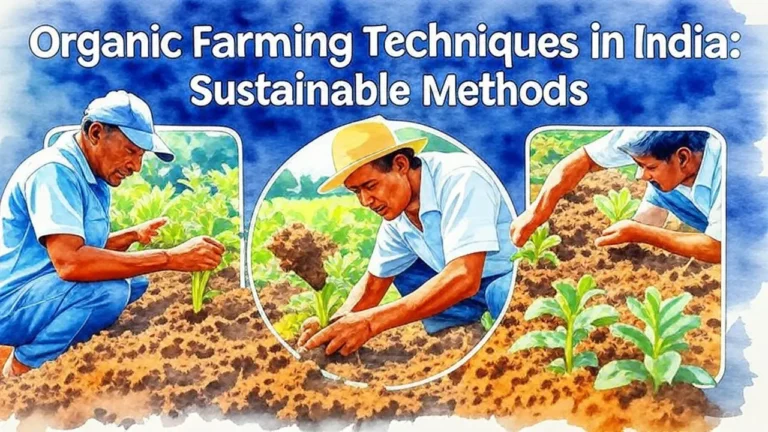When most people think about making money in agriculture, the first image that often pops into their minds is that of purchasing land. Unfortunately, for many, owning land isn’t a feasible option. The good news is that there are countless non-traditional agricultural opportunities available for those who have a passion for farming or a background in the industry.
Agriculture has evolved significantly over the years. It’s no longer just about tilling fields and planting crops; today, it encompasses a vast array of profitable ventures that go far beyond the traditional model. If you’re on the lookout for innovative ways to get involved in agriculture without the need for farmland, here are ten lucrative business ideas to consider.
10 Non-Traditional Agriculture Business Ideas
1. Food Processing

If you want to dive into the agricultural sector without the hassle of owning a farm, food processing could be your golden ticket. Many small-scale farmers struggle with the challenge of storing large quantities of produce, particularly during peak harvest seasons, leading to waste and lost income. By starting a food processing business, you can help tackle this issue while reaping profits.
The concept is straightforward: purchase farm produce directly from local farmers—often at discounted prices during surplus times—and transform it into finished goods with a longer shelf life. Think about turning cassava into flour, tomatoes into pasta, or producing vegetable oils. With increasing demand for convenient, ready-to-use products, the potential for profit in food processing is substantial. Plus, this business is scalable; you can start small and gradually expand as you build your customer base.
2. Agricultural Financing

Another exciting avenue in the agricultural arena is agricultural financing, or Agri-Finance. This business model allows you to get involved in the agricultural sector without getting your hands dirty. The idea revolves around providing financial support to disadvantaged or rural small-scale farmers, helping them invest in their operations, improve production, and mitigate risks.
As an investor or financial institution, you would lend money to farmers, typically offering favorable terms that empower them to grow their businesses. In return, you earn interest on these loans, making it a profitable venture for both parties. While there are risks—such as market volatility and climate challenges—agricultural financing can yield significant returns and boost agricultural productivity in the community when executed with thoughtful strategies.
3. Seed Supply

Starting a seed supply business is another fantastic option for those looking to engage with the agricultural sector without the necessity of a farm. This venture focuses on providing high-quality seeds to farmers, allowing them to enhance their yields and expand their operations.
You won’t need to partake in the planting or harvesting, but rather concentrate on sourcing and supplying the right seeds for various crops. The beauty of this business lies in its low startup costs; with a minimal investment, you can start catering to the needs of local farmers. Additionally, running the business from home can provide you with the flexibility to work at your own pace. As demand for high-quality seeds continues to rise, this venture can be both rewarding financially and relatively low risk.
4. Farm Equipment Sales

For those interested in agriculture but who prefer not to farm directly, selling farm equipment can be a highly profitable venture. Farm equipment plays a crucial role in the success of agricultural operations, and as the industry evolves, so does the demand for modern, high-quality machinery.
You could start a farm equipment sales business in both rural and suburban areas, offering everything from tractors to harvesters and irrigation systems. There are various approaches you can take—focusing on new or used equipment, or even offering rental options. With the ongoing trend toward automation in agriculture, this could be a timely and lucrative opportunity to consider.
5. Organic Fertilizer Production

Are you passionate about sustainability? Producing organic fertilizers can be a rewarding way to enter the agricultural sector. This business is about converting organic waste—like kitchen scraps and agricultural by-products—into valuable fertilizers.
As the demand for organic farming methods rises, so too does the need for organic fertilizers, creating an excellent opportunity for entrepreneurs. Plus, this venture contributes positively to the environment by reducing waste and promoting sustainable farming.
6. Agricultural Consulting

If you have expertise in farming practices, soil management, or crop production, consider starting an agricultural consulting business. Many farmers are looking for guidance on how to optimize their operations, improve yields, and utilize sustainable practices.
As a consultant, you can provide invaluable insights, strategies, and solutions that help farmers achieve their goals. This business can be operated on a freelance basis, allowing you to work with multiple clients and set your own schedule.
7. Agritourism

Combining agriculture with tourism can create unique experiences that attract visitors and generate additional income. Agritourism involves inviting guests to experience life on a farm, be it through pick-your-own fruit opportunities, farm tours, or workshops on sustainable farming practices.
This venture not only provides a fun and educational experience for guests but also helps farmers diversify their revenue streams. By welcoming people to see firsthand where their food comes from, you can create a rewarding and profitable business.
8. Beekeeping

Beekeeping is another fascinating agricultural venture that has gained popularity in recent years. Bees play a crucial role in pollination, and by keeping hives, you can produce honey and other bee-related products like beeswax and propolis.
With the increasing awareness of the importance of pollinators in agriculture, there’s a growing market for local honey and other bee products. Beekeeping can be a fulfilling hobby that turns into a profitable business if managed properly, and it also contributes positively to the environment.
9. Urban Farming

Urban farming is an innovative concept where individuals grow produce in urban spaces, such as rooftops or community gardens. With the rising interest in local, fresh food, urban farming has become a viable option for many city dwellers.
This agricultural business can take various forms, from small backyard gardens to larger community initiatives. By providing fresh produce in urban environments, you can tap into a growing market while promoting sustainability and community engagement.
10. Hydroponics and Aquaponics

Lastly, consider the worlds of hydroponics and aquaponics—soilless farming techniques where plants are grown in nutrient-rich water. This method offers a sustainable way to produce food in limited spaces, making it ideal for urban or suburban settings.
As consumers increasingly look for fresh, locally grown produce, hydroponics and aquaponics can be incredibly profitable. You can sell your produce directly to consumers or local restaurants, tapping into the demand for fresh, high-quality ingredients.
In conclusion, the agricultural sector is rich with opportunities for those willing to think outside the box. Whether you choose to dive into food processing, financing, or innovative farming practices, there are many ways to make a meaningful impact in this evolving industry. With a little creativity and entrepreneurial spirit, you can carve out a niche that not only offers financial rewards but also contributes to the sustainability and growth of agriculture.
Read more crops cultivation- 7 Best High Profit Crops for Small and Large-Scale Farming
Shivank patyal is a versatile blogger with a B.Sc. in Plant Biotechnology and 5 years of experience writing about agriculture, sustainability, and entertainment topics. With expertise in digital marketing and field experience in crop cultivation, Shivank provides practical insights for farmers while also engaging readers with content on diverse subjects. Passionate about sharing knowledge, Shivank combines education and creativity to connect with a wide audience.




